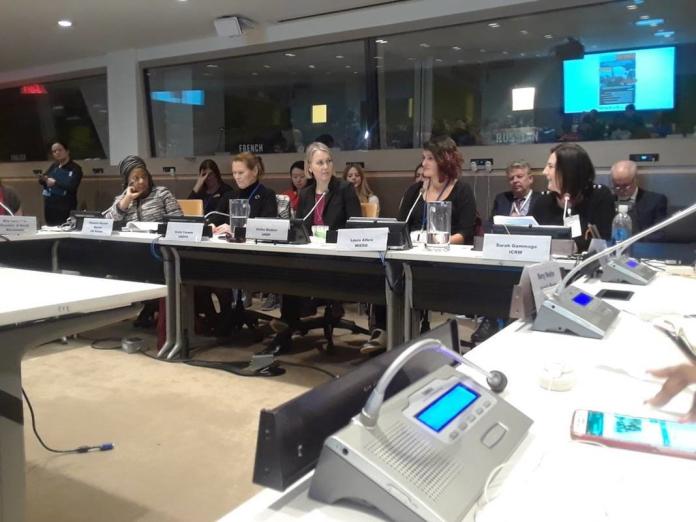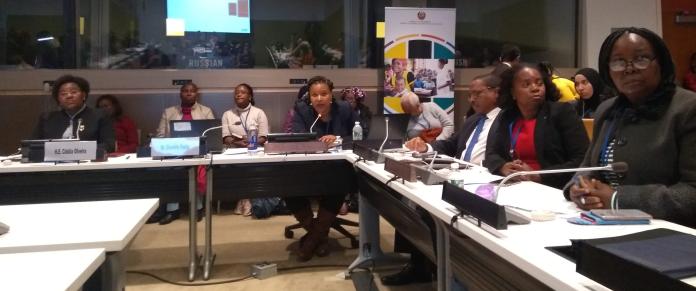How public service programmes can help empower women?
MUVA's Iana Barenboim discusses the conclusions from the 63rd Commission on the Status of Women
-
Date
April 2019
-
Areas of expertisePoverty and social protection (PSP) , Cross-cutting themes
-
CountryMozambique
-
KeywordsGender, equality, and social inclusion , Social protection
-
ProjectMUVA: female economic empowerment in Mozambique
Last month, decision makers from the UN member states, UN entities, and representatives from the NGO and private sector attended the 63rd session of the Commission on the Status of Women (CSW). Tasked with mainstreaming gender perspectives across UN activities, the Commission helps promote gender equality and empowerment of women.
The theme of this year’s event focused on the role of social protection systems, access to public services, and sustainable infrastructure to enhance gender equality and the empowerment of women and girls around the world. Building on set of Background papers, participants discussed key lessons learnt in recent years for finding practical answers to address old challenges, such as the unequal burden of care, which is often undertaken by women, and multiple and intersecting forms of discrimination and gender-based violence.
Some of the highlights from the event included:
- Hearing more about FAO's Gender Sensitive Social Protection Toolkit
- Exploring how to empower women in informal employment: 61% of workers worldwide are employed in the informal sector, many of whom are women. As such, it is essential any policy reforms need to consider the implications for these groups. WIEGO’s briefing note ‘Extending Social Protection to Informal Workers’ provides a roadmap on how to extend social protection coverage to informal workers
- Listening to Deepta Chopra discuss her framework on interconnections between social protection, infrastructure, and public services sector, and explain how gender affects the risks we face and how we cope with these along the lifecycle, mediated by policy interventions and social norms

Photo from the WIEGO's side event on policy coherence for the empowerment of women in informal employment
Sharing practical experience from Mozambique
We came to CSW to explore the role of social protection in addressing life-cycle risks, increasing access to services, and promoting women and girls’ economic empowerment, voice, and agency – aligned with the SPIAC-B Joint Statement. We also took this opportunity to highlight some of the recent learnings from our MUVA programme, which aims to increase female economic empowerment for vulnerable young women in urban areas in Maputo, Mozambique.
[button-link text="Discover more about MUVA: a photo story" link="https://www.opml.co.uk/blog/photo-story-boosting-womens-economic-empowerment"]
The Government of Mozambique recognizes the importance of social protection systems for helping vulnerable populations, especially women, to withstand unexpected socio-economic shocks and graduate out of poverty. In a session on Transformative gender responsive social protection for rural and urban realities: experiences from Mozambique, we joined the Mozambican Minister of Gender, Children and Social Welfare, Hon. Cidália Oliveira, to share our work on gender-sensitive public works (see our framework), focusing in particular on MUVA Assistentes. This programme is helping to create job opportunities for vulnerable women in delivering public services – placing them as assistant teachers in overcrowded primary schools, where they help support the teachers and gain first-hand experiences working in the education sector.

MUVA’s project manager Shaista de Araujo sharing her experiences from the programme
Preliminary findings from MUVA Assistentes suggest that the approach has had positive impact on beneficiaries, who have acquired valuable skills that help them to enter the labour market and graduate out of poverty. Thus, as beneficiaries of a regular income they have for the first time the ability to make financial plans and start saving. In addition, evidence suggests that having a recognised and valued role in the community has had significant positive impacts both on the young women themselves, as well as their community. Another cycle is being implemented this year and more data will be coming out soon.
For further information, UN Women released an unedited version of the agreed conclusions of this 63rd session of CSW.
